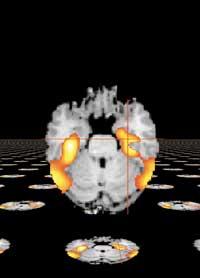Protein of forgetfulness
2002/08/29 Galarraga Aiestaran, Ana - Elhuyar Zientzia
The researcher at the Swiss Federal Institute of Technology, Isabelle Mansuy, and her team, have analyzed a protein related to forgetfulness called PP1 and have published their results in the journal Nature. Research has found that PP1 protein is critical in the process of forgetting. In addition, research helps understand why memory is lost with age.

To carry out the research, some mice have been genetically modified to produce a molecule that disrupts the activity of the PP1 protein. Memory exercises have been performed with these mice and common mice.
For mice to remember certain things, they put them in boxes with three things for 5 minutes. Between one session and the next they left between 5 and 15 minutes. Once the activity was over, the mice stood before those things, to see if they remembered them. Mice will study unknown things, spend more time smelling them and looking at them than with those they know. Then, the researchers found that common mice remember things better after a long period of time, while those without PP1 remembered it equally even with 5 minutes. According to this, for longer, researchers have concluded that the brain has time to block PP1 and that things are better fixed in memory.
In addition, the team of researchers has found that memory loss that occurs with age is avoided if PP1 is inhibited. To do this, some old mice (15 to 18 months) were analyzed, which remember how much there was an underwater platform. The results were significant: the common mice had a sufficient day to forget the platform, while those who had blocked the activity of the protein PP1 remember up to 4 weeks its location. It appears that PP1 protein increases with age compared to proteins that contribute to the memory storage process, while memory loss is reversible if PP1 is inhibited. ... Certainly, the processes of memory and forgetfulness are complex, but their understanding has taken another step.

Gai honi buruzko eduki gehiago
Elhuyarrek garatutako teknologia





